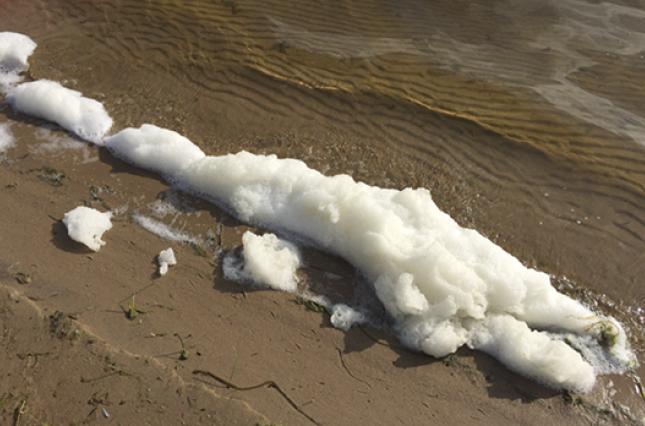
PFAS chemicals are a class of chemicals used to make products grease proof, water-proof, stick-proof, and stain-resistant. They are added to:
- Food Packaging: pizza boxes, food wrappers, take out containers, microwave popcorn bags, disposable trays, and bakery bags;
- Non-stick pans (Teflon)
- Firefighting foam
- Carpets, rugs, furniture textiles, window treatments, car seats
- Stain-proof and waterproof clothing
- Outdoor gear
- Umbrellas
- Personal care products like dental floss, mascara, foundation, menstrual underwear
- Artificial turf
- Medical equipment and masks
- Building products
- Firefighters’ personal protective equipment,
- And more.
PFAS chemicals have been dubbed “forever chemicals”, because they are extremely persistent, lasting thousands of years. Every American tested has PFAS in their blood.
That’s a problem because very small doses of PFAS increase the risk of a wide variety of health problems, including kidney and testicular cancer, liver problems, high cholesterol, and immunosuppression.
In 2005, under pressure from a class action lawsuit, industry stopped manufacturing two of the most harmful PFAS chemicals: PFOA and PFOS. But, these two chemicals have contaminated water systems across the country, and the world.
Industry has replaced PFOA and PFOS with similar, but slightly modified chemicals. While scientists have not studied every PFAS chemical—there are 9,000 variants—those chemicals that have been studied show similar properties to PFOA and PFOS. They are persistent, mobile and toxic at very low doses, often acting in similar ways on similar organs as the chemicals they were developed to replace.
Take Action
Join Clean Water Action as a member and support our work! We will send you updates about the PFAS campaign and let you know about opportunities to let your legislators know what you want them to do about PFAS and other toxic chemicals that harm the health of communities in Massachusetts and across the US.
Resources
- PFAS factsheet
- Infographic on PFAS
- Shopper’s Guide to Avoiding PFAS
- Massachusetts and PFAS
- PFAS Glossary
- Drinking Water Testing Glossary
- Elevated PFAS in your water: Steps you can take to protect yourself
These fact sheets were developed under a grant from the Toxic Use Reduction Institution at UMass Lowell. For more information, contact Elizabeth Saunders here.
